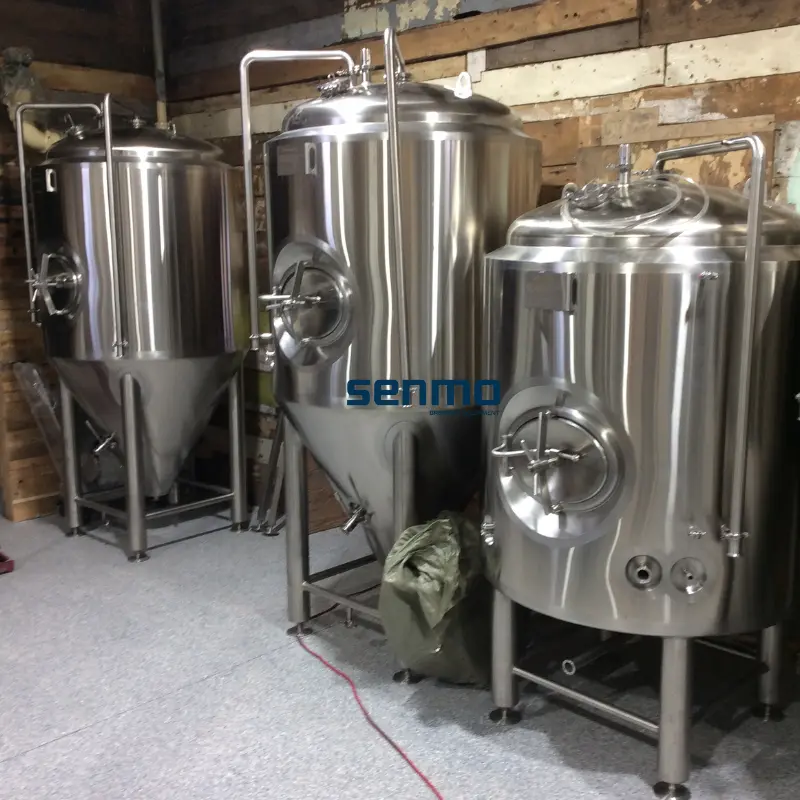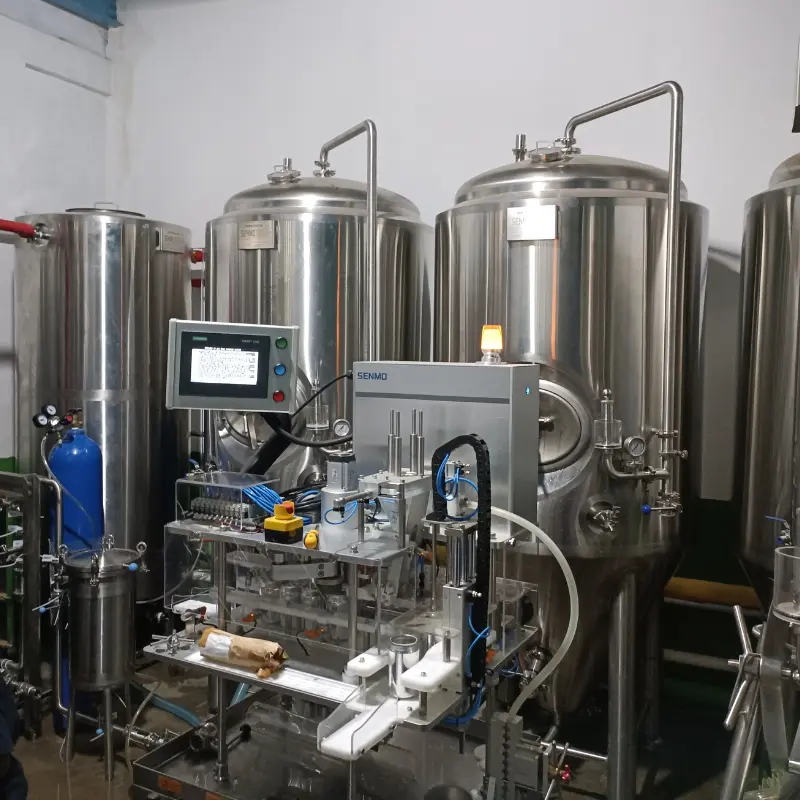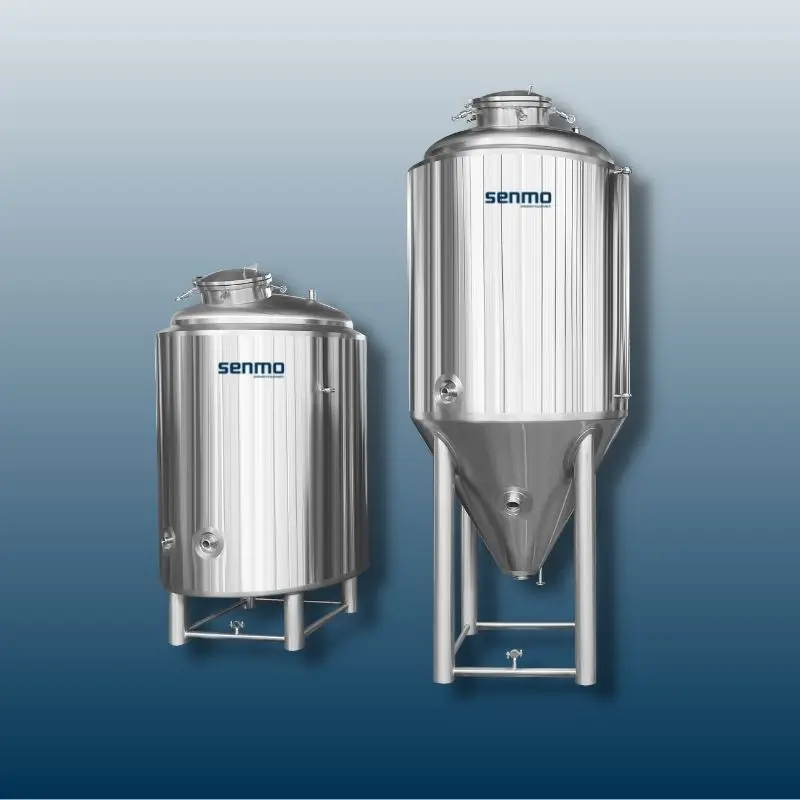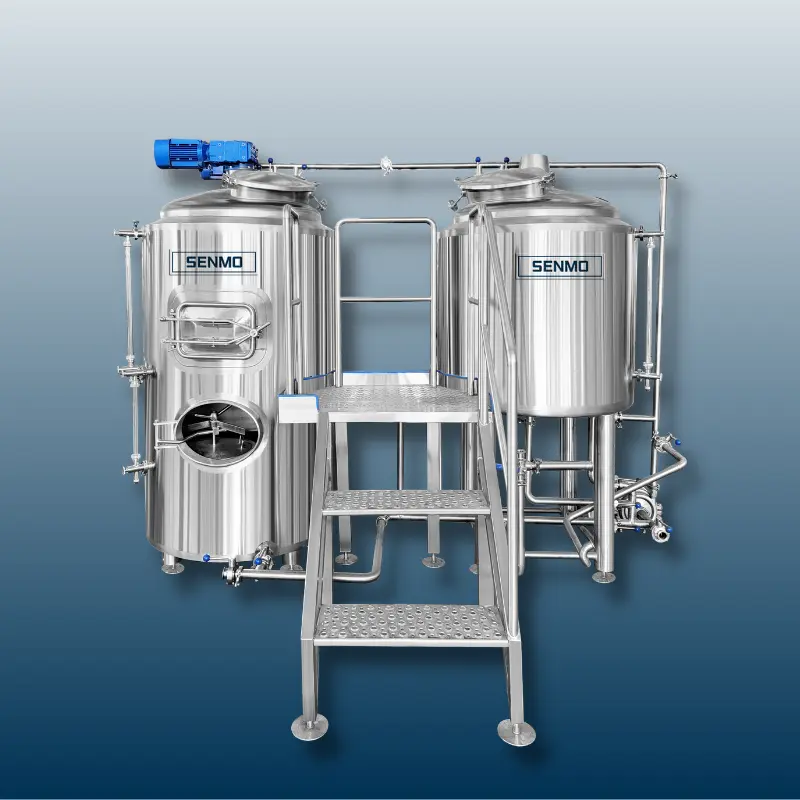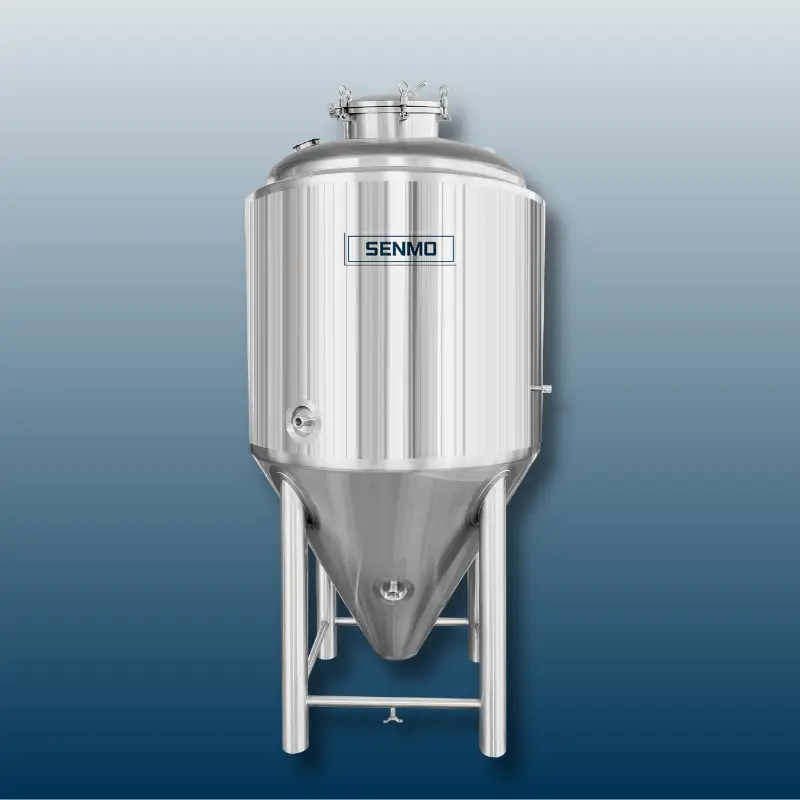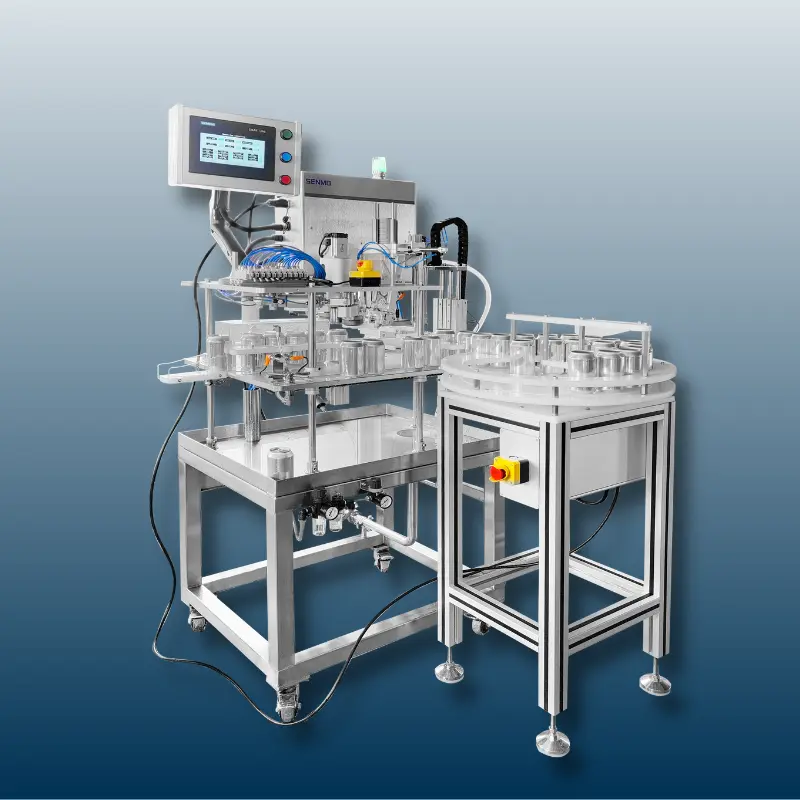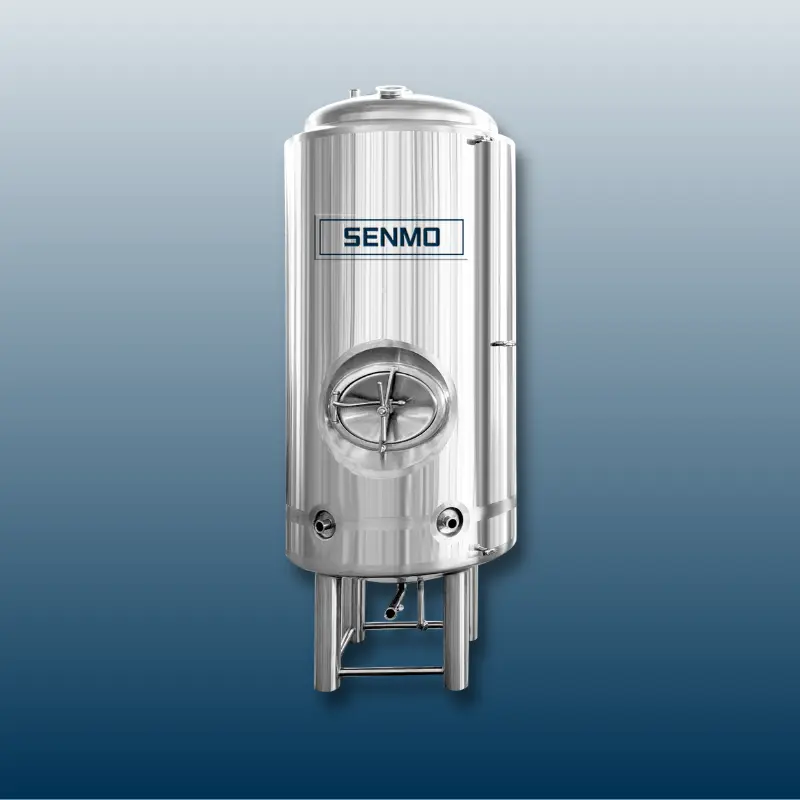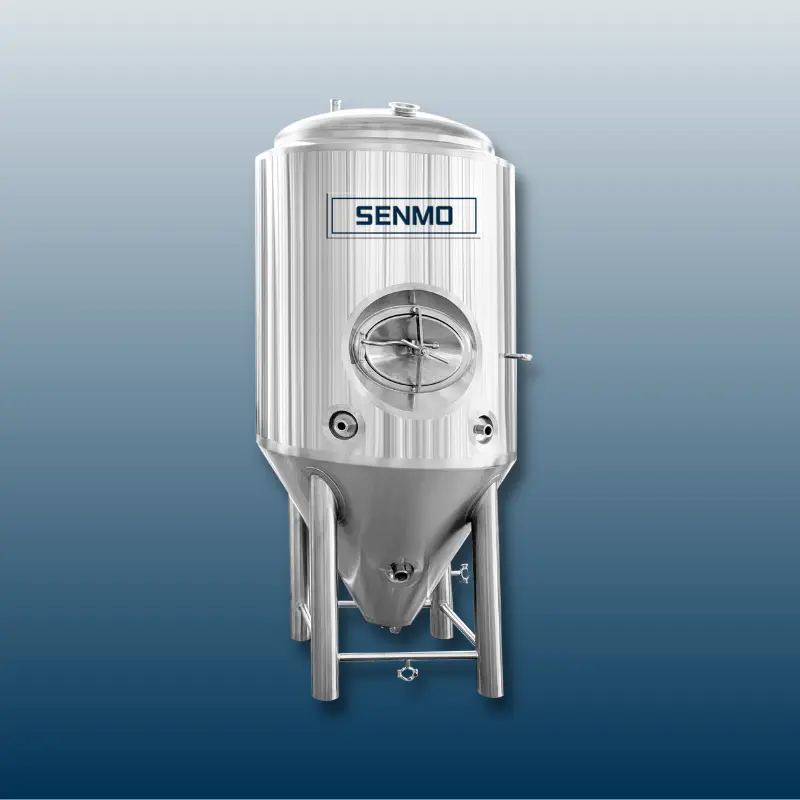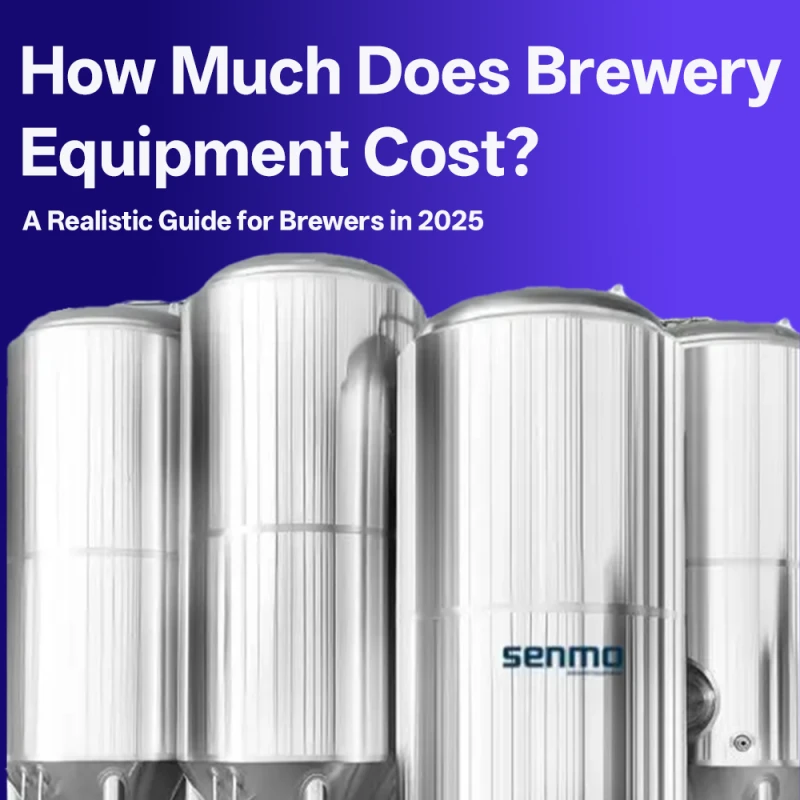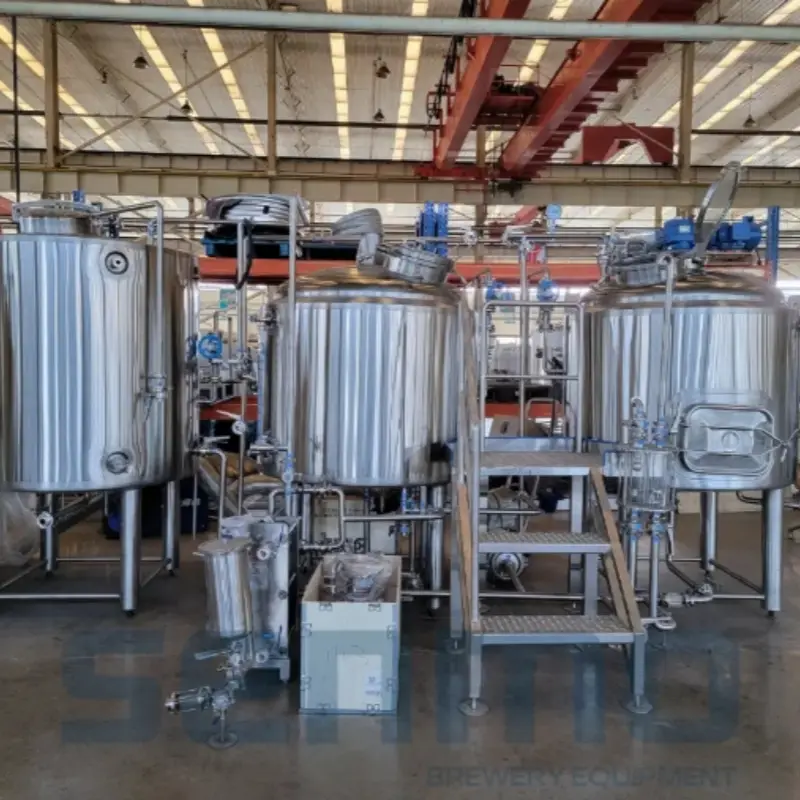In the intricate world of microbreweries, precision in fermentation is paramount to crafting distinctive and high-quality beers. The 250L Jacketed Fermenters emerge as a cornerstone in achieving this precision, providing microbreweries with the tools to control temperature, optimize yeast activity, and elevate the fermentation process.
250L jacketed fermenters for microbrewery

This is our net volume 250L jacketed fermenters for microbrewery,it is also a good choice for those who have homebrewing equipment with such capacity.The fermenters are easy to operate,with mini tank body,it occupys very small space.The surface of the tanks are brushed polishing finished,but you can choose mirror polishing,or copper outer surface as per your requirements,we can do the customized design for you.

Our factory use laser cutting and argon shielded welding during the tanks' production, the internal of the tanks commonly do pickling and passivation, the surface accuracy ≤ 0.4 μ m;The 250L jacketed fermenters and 250L bright tank has polyurethane foam insulation,thickness is 80mm;There is dimple cooling jackets around the tank body and bottom cone,the test pressure is 0.4MPa; The working pressure of the tank is 0.15 MPa, and the test pressure is 0.4 MPa; Our factory do water pressure test to all of the fermenters and bright tanks,the test period is 48hours.The strictly test and inspection make sure the tanks inside,the dimple jackets and pipe ports has no leakage when the fermenters arrives in our clients' brewery.926841.webp)
The following fittings are matched with the 250L jacketed fermenters:
-Mechanical pressure regulating valve
-Beer sample valve
-Breath valve
-Thermometer
-Hops dosing port
-Temperature sensor
-Beer rotary pipe
-Drain outlet
-CIP ball and CIP arm
-CO2 carbon stone
The connection of the fittings can be tri-clamp,diary couplers and other connection way you want.Meanwhile,if you need other fitings or port on the fermenters,you can tell us and we do the special design for you.

The cooling pipes+insulation pipes+wrapped tape+temperature sensor wire
A complete beer cooling system in the microbrewery including glycol water tank, cold water tank, chiller, pump and relevant pipelines. Below is detailed instruction on the cooling system:
Glycol water tank specification: 100L-30000L;The tank plates and accessories are made of international standard SUS304 stainless steel; Laser cutting and argon shielded welding, internal centralized pickling and passivation, accuracy ≤ 0.4 μ m; Polyurethane foam insulation;
Chiller specification: 1HP-50HP;
Cooling pipes material: PPR, stainless steel;
Cooling pipes thermal insulation materials: rubber plastic sponge, polyurethane, etc;
Exterior decoration of cooling pipes: colored binding tape, iron sheet, stainless steel, etc
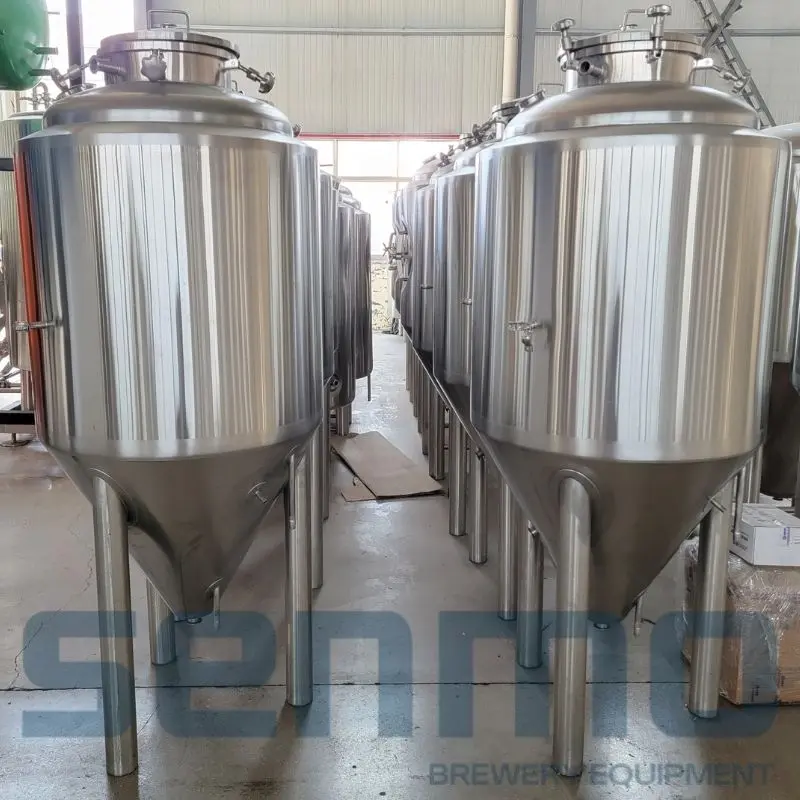
The price of the 250L jacketed fermenter is different because of various configuration.If you want add extra beer fermenters inside of your brewery,please send us your requirements on it,such as the quantity of the fermenters,the fittings on the fermenters,your brewery layout drawings...our sales engineer can send you a formal 250l beer fermenter quote for reference.
FAQ
Q1: What is the capacity of the 250L Jacketed Fermenters?
A1: The fermenters have a capacity of 250 liters, making them suitable for small-batch brewing in microbreweries.
Q2: How does the jacketed design contribute to temperature control during fermentation?
A2: The jacketed design allows for precise temperature control during fermentation. Microbrewers can regulate the temperature to create optimal conditions for yeast activity, ensuring consistent and desired flavor profiles.
Q3: Why is stainless steel construction important for these fermenters?
A3: Crafted from high-quality stainless steel, the fermenters offer durability and longevity. Stainless steel's corrosion resistance simplifies cleaning and maintenance, meeting the stringent hygiene standards crucial in brewing.
Q4: How does the conical shape of the fermenters facilitate efficient yeast collection?
A4: The conical shape allows for efficient yeast collection. After fermentation, sedimentation is streamlined to the cone's bottom, simplifying the yeast harvesting process for future batches.
Q5: Is the compact footprint suitable for microbrewery spaces?
A5: Yes, the compact footprint is designed to efficiently use microbrewery spaces, making the fermenters suitable for environments with limited space.
Q6: What brewing techniques can be explored with the pressure capability of these fermenters?
A6: The pressure capability enhances versatility, allowing microbrewers to experiment with carbonation levels and explore pressure fermentation techniques for a diverse range of beer styles.
Q7: How do tri-clamp connections contribute to maintenance?
A7: Tri-clamp connections make disassembly and reassembly straightforward. This simplifies cleaning, allows for easy inspection, and ensures consistent brewing quality through proper maintenance.
Q8: How does the sight glass enhance the brewing process?
A8: Equipped with a sight glass, microbrewers can visually monitor the fermentation process. This feature provides insights into yeast activity, sedimentation, and overall fermentation progress without the need for frequent vessel opening.



523.webp)



